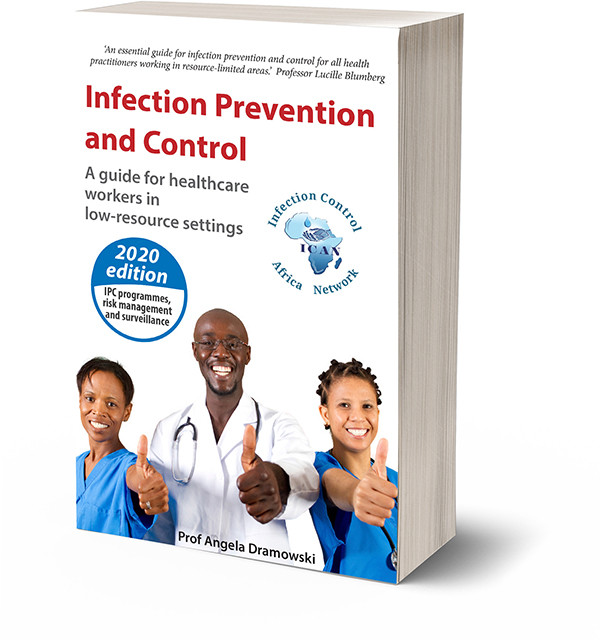Quiz 5: Management of children with antiretroviral treatment
Please choose the one, most correct answer to each question or statement.
- At which clinical stage should antiretroviral treatment be started in children older than 5 years?
- Clinical stage 1
- Clinical stage 2
- Clinical stage 3 or 4
- All children irrespective of clinical stage.
- Which children should be fast tracked onto antiretroviral treatment?
- A child with MDR-TB clinical disease
- A 16 month old child with stage 1 disease
- A child with a CD4 count of 250 cells/μl
- A 6 year old child with stage 2 disease
- Which one of the following is essential before starting antiretroviral treatment?
- The mother should have at least seven years schooling.
- There must be at least one responsible adult to help administer medication.
- The father should be employed.
- The parents should own their house.
- Where should antiretroviral treatment be started?
- Always in hospital
- At any regional hospital
- At any primary healthcare clinic
- Only at a clinic or hospital with staff trained in antiretroviral treatment
- What is ‘patient readiness’?
- The child should be well enough to take oral medication.
- The parents should be able to afford the drugs needed for antiretroviral treatment
- The child and care givers should be educated and motivated to give antiretroviral treatment.
- The child must be able to take full responsibility for the antiretroviral treatment.
- Which of the following is an essential part of preparing a family for antiretroviral treatment?
- The parents must have a good understanding of HIV.
- The whole family must know the child’s HIV status.
- The child’s weight should be increased to the 50th percentile.
- There should be running water and electricity in the home.
- How long does it usually take to prepare a family for antiretroviral treatment?
- Two months
- A months
- Three weeks
- Two counselling sessions
- After starting antiretroviral treatment, when should you arrange the first follow-up visit?
- One week
- Two weeks
- Three weeks
- Four weeks
- What special blood test should be done at the 3 month follow-up visit if the child is receiving AZT?
- Full blood count and differential count
- A lipid profile
- Serum lactate concentration
- Blood glucose concentration
- What should the viral load be after six months of antiretroviral treatment?
- No higher and at least 10% below the baseline level
- At least 25% below the baseline level
- At least 50% below the baseline level
- Undetectable
- What is excellent adherence on twice a day dosage?
- Taking 50% of the required doses
- Taking 80–95% of doses
- Taking at least 95% of doses
- Not missing any doses
- What are the dangers of poor adherence?
- Severe side effects
- Drug resistance
- Treatment failure
- Both drug resistance and treatment failure
- How can adherence be improved?
- Using reminders such as an alarm clock or radio programme
- Threatening to stop antiretroviral treatment
- Severely criticising the parents at the follow-up clinic
- Giving the antiretroviral drugs as an intramuscular depot
- Excellent adherence must be assessed and stressed at:
- The first follow-up visit
- The second follow-up visit
- The six month follow-up visit
- Every follow-up visit
- Drug resistance may occur when:
- INH prophylaxis for TB interferes with the antiretroviral drugs.
- 3 drugs are used instead of 4.
- NVP is used as prophylaxis during delivery.
- Steroids are given at the same time as antiretroviral treatment.
- What should be done if the first-line treatment fails in spite of excellent compliance?
- Increase the dose of the drugs.
- Add a fourth antiretroviral drug.
- Change to second-line treatment.
- Nothing more can be offered as treatment.
- What TB drug commonly interacts with antiretroviral treatment?
- Ethionamide
- Rifampicin
- Ethambutol
- Pyrazinamide
- Which antiretroviral drug may interact with INH to cause peripheral neuropathy?
- EFV and NVP
- d4T
- AZT
- Lopinavir/ritonavir
- What is the immune reconstitution inflammatory syndrome (IRIS)?
- One of the criteria for stage 4 HIV infection
- A common indication for starting antiretroviral treatment
- A serious side effect of NVP
- A possible reason for an unexpected deterioration after starting antiretroviral treatment
- What immunisation is typically associated with the immune reconstitution inflammatory syndrome (IRIS) in children?
- Polio
- Pertussis
- BCG
- Measles

